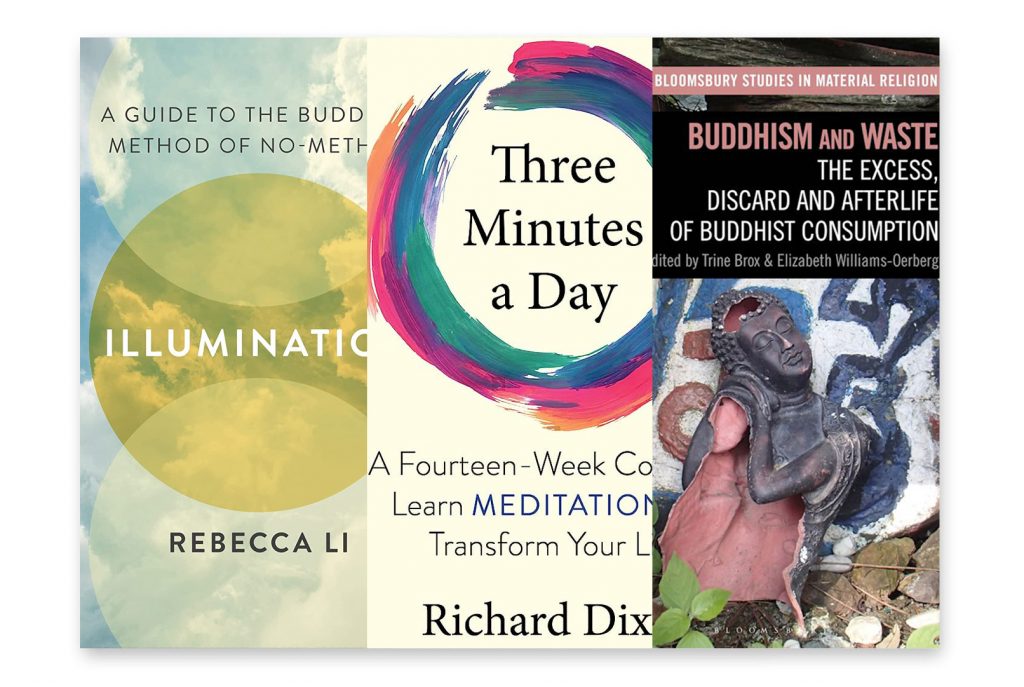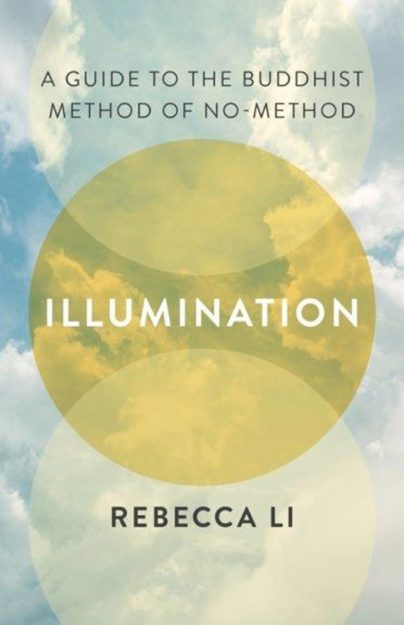
Illumination: A Guide to the Buddhist Method of No-Method
by Rebecca Li
Shambhala Publications, October 2023, 280 pp., $21.95, paper
There’s method in the no-method approach, or the Buddhist practice of “silent illumination” as taught by Chan Master Sheng Yen (1931–2009). Rebecca Li, a Chan Buddhist teacher, writes that this method completely changed her understanding of silence. Silence does not mean to “push away or avoid all noise,” but instead to “refrain from succumbing to our habitual reactivity that gets in the way of fully experiencing the present moment as it is.” After introducing readers to the essential components of silent illumination, chapters on the “modes of operation,” including craving and trance, help us halt reactivity and see contentment as our natural state of being.
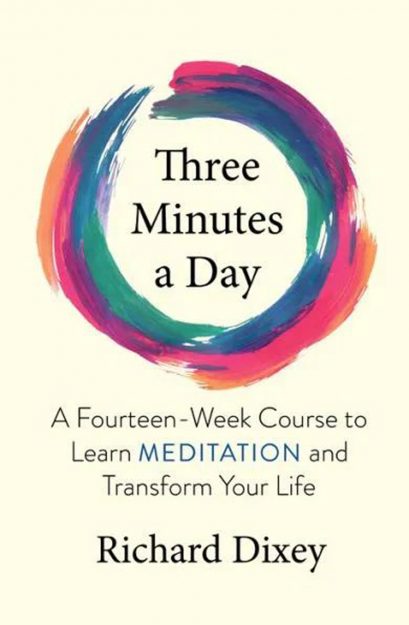
Three Minutes a Day: A Fourteen-Week Course to Learn Meditation and Transform Your Life
by Richard Dixey
New World Library, August 2023, 144 pp., $18.95, paper
No matter how busy we are, we can probably find three free minutes per day. This guide by Richard Dixey, a senior faculty member at Berkeley’s Dharma College, makes the bold claim that just a few minutes of daily meditation can “generate a real insight into personal experience that no amount of reading can replicate.” Exercises include watching a candle to develop concentration and listening to the sound of a fading gong to develop flexible concentration. This guide is suitable for both beginners and experienced meditators looking for a shift in perspective. A free mobile app is also available to keep you on track.
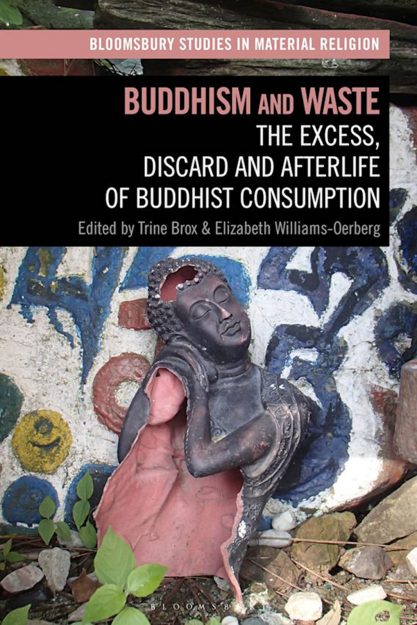
Buddhism and Waste: The Excess, Discard, and Afterlife of Buddhist Consumption
edited by Trine Brox & Elizabeth Williams-Oerberg
Bloomsbury Academic, 2022, 194 pp., $35.95, paper
Buddhism is green. At least more than other religions, right? Although many like to valorize Buddhism as inherently antimaterialist and mindful of its worldly interconnectedness, the lived reality is quite different. From the garbage, sewage, and excrement produced daily by both monastics and lay Buddhists to the desacralized ritual objects and decaying mummified bodies left behind by the dead, this timely and poignant text examines the Buddhist contribution to the seemingly endless wave of “zombie rubbish” that sits poised to overwhelm and consume our very existence.

Scholar’s Corner
Living Treasure: Buddhist and Tibetan Studies in Honor of Janet Gyatso
edited by Holly Gayley and Andrew Quintman
Wisdom Publications, June 2023, 544 pp., $59.95, hardcover
Janet Gyatso, the Hershey Professor of Buddhist Studies at Harvard University, is “one of the most creative and influential thinkers of her generation,” as the editors of this anthology by her peers write. Living Treasure celebrates two areas of her greatest expertise—terma (hidden texts) and Tibetan autobiographical writing—and features essays from many of her former students. Gyatso’s multidisciplinary approach and “interrogation of what it means to be human” are found in her pieces on supine demonesses, a third gender, and Tibetan nuns’ advocacy for full ordination. What results is a scholarly work that need not be limited to an academic audience.
WHAT WE’RE REREADING
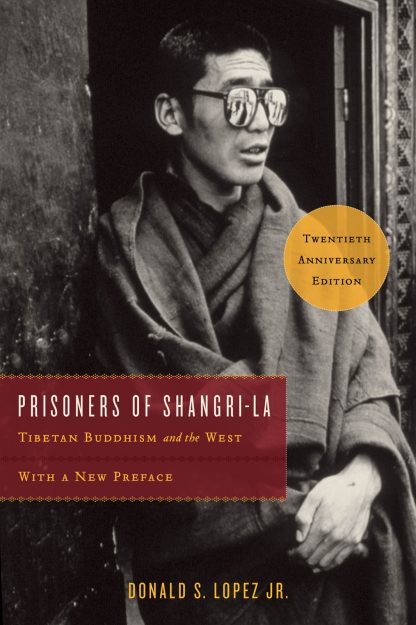
Prisoners of Shangri-La: Tibetan Buddhism and the West
by Donald S. Lopez Jr.
Cultural misunderstandings often fuel the divisive debates across our fractious and fractured online forums. In this overheated milieu, examining the roots of our ideas about Buddhism is crucial. Donald Lopez’s groundbreaking challenge to Western cultural assumptions about Tibet and Tibetan Buddhism, Prisoners of Shangri-La (published in 1998 and revised in 2018), still resonates. Lopez’s detailed catalog of countless tropes that still shape popular discourse adds needed context to the endless stream of misinformed posts and drive-by comments. Cutting through complexity with meticulous yet down-to-earth prose and a bodhisattva’s compassion, Lopez delivers a trenchant critique of Western fantasies about Tibet.
–Frederick M. Ranallo-Higgins
Thank you for subscribing to Tricycle! As a nonprofit, we depend on readers like you to keep Buddhist teachings and practices widely available.
